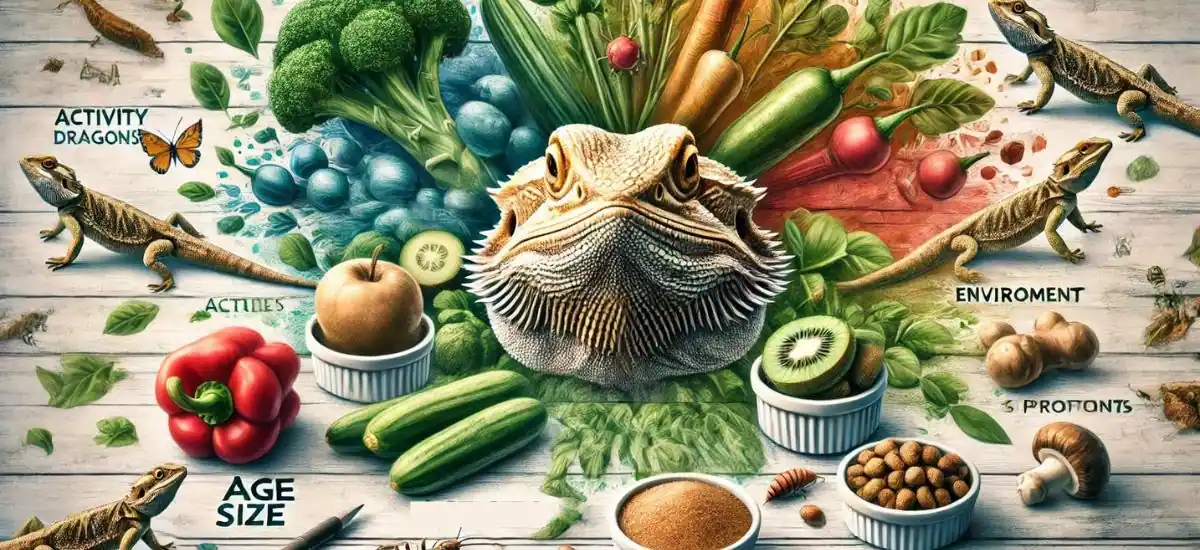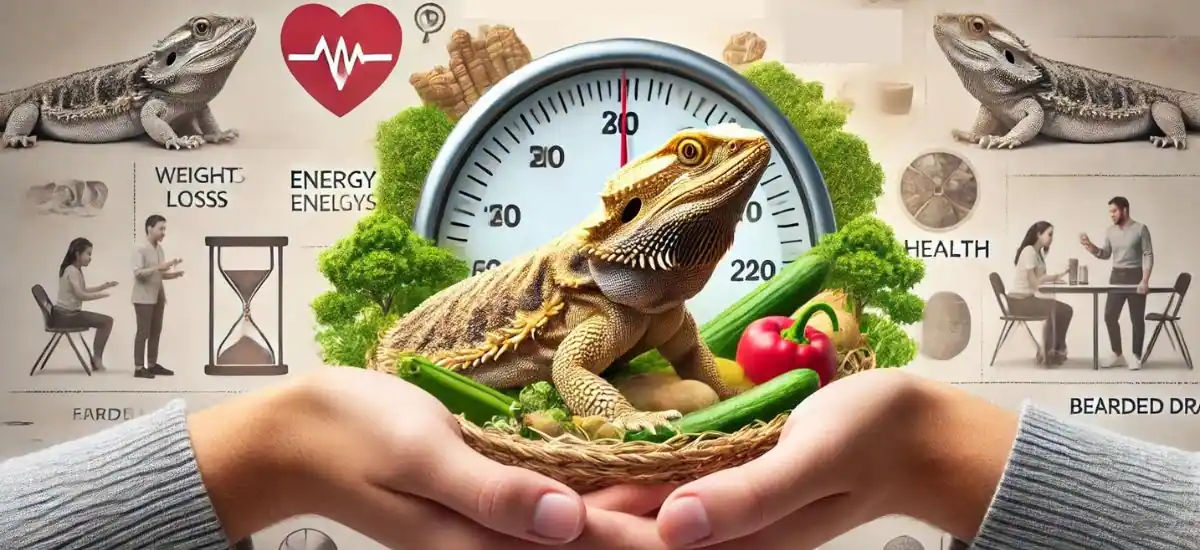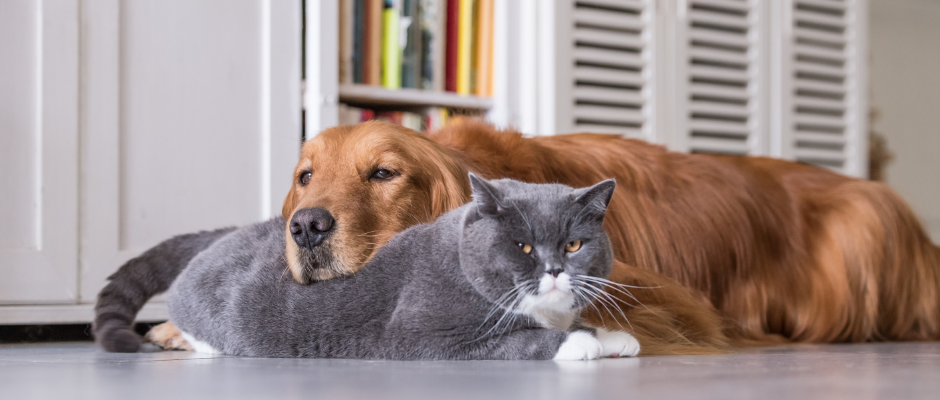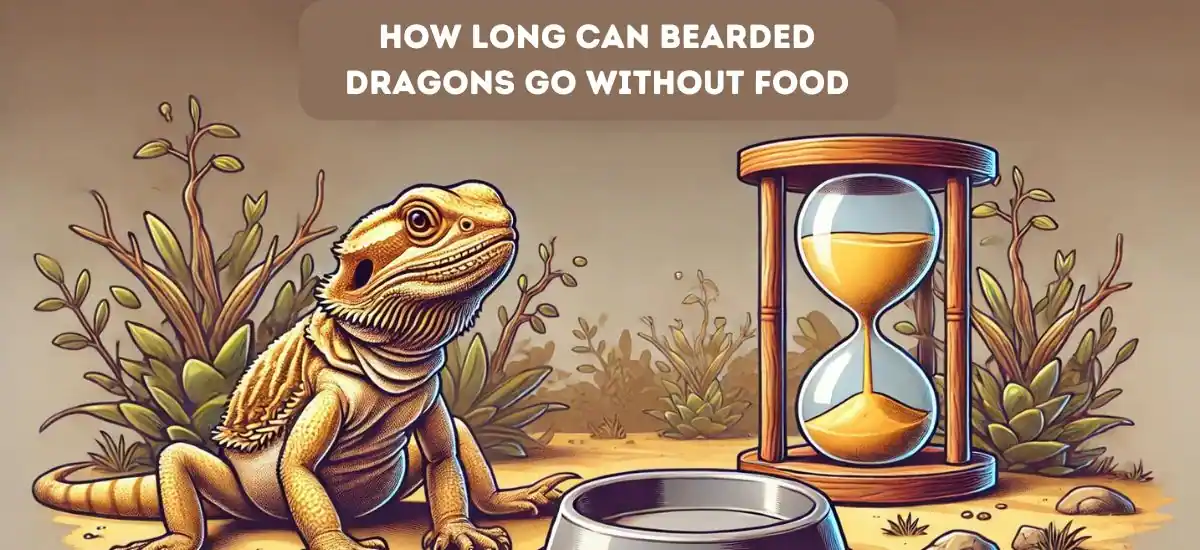Have you ever wondered just how long your bearded dragon can skip meals without harm? It’s a common question for many pet owners who want to ensure their scaly friends are healthy and happy. Bearded dragons can survive without food for different durations depending on their age and health, but it’s vital to know the specifics to avoid any risk. Understanding their dietary needs can give you peace of mind, especially during times when their eating habits might change.
Understanding Bearded Dragons’ Nutritional Needs
Bearded dragons have specific dietary requirements that vary throughout their lives. Juvenile dragons need a diet rich in protein to support rapid growth, typically requiring food once or twice a day. On the other hand, adults thrive on a balanced mix of insects and vegetables, eating less frequently. Here’s what you need to know:
- Protein Sources: Crickets, mealworms, and other small insects.
- Vegetables: Leafy greens and safe veggies should make up a significant part of their diet.
- Hydration: Fresh water should always be available, complemented by moisture from food.
Factors Influencing Food Requirements

Several factors can affect how often your bearded dragon needs to eat:
- Age and Growth: Younger dragons eat more often than older ones due to their growth demands.
- Health Status: A sick dragon may eat less; always monitor their health closely.
- Environmental Conditions: The temperature and setup of their habitat can greatly influence their appetite. Warmer environments typically boost their metabolism, leading to increased food intake.
How Long Can Bearded Dragons Safely Go Without Food?
Understanding the resilience of bearded dragons is crucial for managing their care during periods when they might not eat:
- Babies: Typically, they should not go without food for more than 24 hours due to their rapid growth needs.
- Juveniles: These can manage a day or two without food but should ideally have regular meals to support their development.
- Adults: Mature dragons can survive up to two weeks without food, but this is not advisable unless under specific circumstances like brumation.
Potential Risks of Extended Fasting
Going too long without food can pose serious health risks for your bearded dragon. Here’s what to watch out for:
- Weight Loss: This is one of the first signs of inadequate nutrition.
- Decreased Energy Levels: A lethargic dragon might be starving or ill.
- Health Complications: Extended periods without food can lead to organ damage and other severe issues.
It’s crucial to differentiate between normal fasting periods and potential health problems. If you’re unsure, it’s always a good idea to consult with a veterinarian.
How to Monitor Your Bearded Dragon’s Eating Habits
Keeping a close eye on eating patterns will help you spot any issues early:
- Regular Monitoring: Keep track of how much and how often your dragon eats. Any sudden changes should raise a red flag.
- Behavioral Cues: Be aware of their usual behavior and any deviations that might indicate health issues or stress.
- Veterinary Checkups: Regular visits to the vet can help catch issues before they become serious.
How Long Can Bearded Dragons Safely Go Without Food?
Understanding the resilience of bearded dragons is crucial for managing their care during periods when they might not eat:
- Babies: Typically, they should not go without food for more than 24 hours due to their rapid growth needs.
- Juveniles: These can manage a day or two without food but should ideally have regular meals to support their development.
- Adults: Mature dragons can survive up to two weeks without food, but this is not advisable unless under specific circumstances like brumation.
Potential Risks of Extended Fasting

Going too long without food can pose serious health risks for your bearded dragon. Here’s what to watch out for:
- Weight Loss: This is one of the first signs of inadequate nutrition.
- Decreased Energy Levels: A lethargic dragon might be starving or ill.
- Health Complications: Extended periods without food can lead to organ damage and other severe issues.
It’s crucial to differentiate between normal fasting periods and potential health problems. If you’re unsure, it’s always a good idea to consult with a veterinarian.
How to Monitor Your Bearded Dragon’s Eating Habits
Keeping a close eye on eating patterns will help you spot any issues early:
- Regular Monitoring: Keep track of how much and how often your dragon eats. Any sudden changes should raise a red flag.
- Behavioral Cues: Be aware of their usual behavior and any deviations that might indicate health issues or stress.
- Veterinary Checkups: Regular visits to the vet can help catch issues before they become serious.
Frequently Asked Questions
Q1. Can bearded dragons live on vegetables alone?
Ans: No, they require a balanced diet including insects for protein.
Q2. How often should I feed my adult bearded dragon?
Ans: Typically, every other day is sufficient, but this can vary based on individual health and activity levels.
Q3. What should I do if my bearded dragon refuses to eat?
Ans: Try offering different foods. If the problem persists, a vet visit is necessary.
Conclusion
Bearded dragons are hardy creatures, but understanding their dietary needs is essential for their well-being. While they can withstand periods without food, it’s crucial to monitor their health and environment to ensure they are not just surviving, but thriving. With the right care and attention, your bearded dragon can enjoy a robust and happy life.





